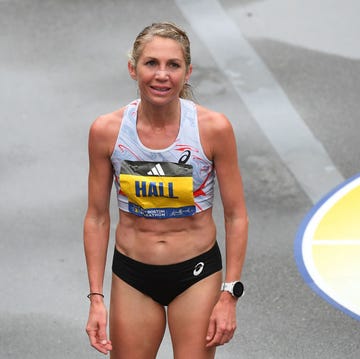In a move that could keep Russian runners out of the 2016 Olympics, Races - Places provisionally suspended the Russian track and field federation Running Shoes - Gear performance-enhancing drugs by the country’s athletes. The suspension is effective immediately and will remain in place until the Russian federation can prove that it is in compliance with the World Anti-Doping Agency code.
Friday’s extraordinary teleconference meeting among IAAF council members was spurred by the release of a WADA report on Monday that described what it called “a deeply rooted culture of cheating” in Russian track and field. The report implicated the entire Russian system, from athletes and coaches to federation and anti-doping officials. The report even suggested that the Russian federal government, which funds the track and field federation through the Ministry of Sport, played a role in encouraging and facilitating systematic doping.
“This has been a shameful wake-up call and we are clear that cheating at any level will not be tolerated,” IAAF President Sebastian Coe said in a statement. “To this end, the IAAF, WADA, the member federations and athletes need to look closely at ourselves, our cultures and our processes to identify where failures exist and be tough in our determination to fix them and rebuild trust in our sport. There can be no more important focus for our sport.”
While the suspension is in place, Russians can’t compete in IAAF-sanctioned international events. The next large-scale such race is the European cross country championships, which will be run on December 13 in Hyères, France. If the suspension remains in effect through the indoor track season, there will not be a Russian team at the 2016 IAAF World Indoor Championships, scheduled for March 17–20 in Portland, Oregon.
In addition, Russia will not host the 2016 World Race Walking Cup and 2016 World Junior Championships as planned.
The ramifications of today’s ruling for individual Russian athletes is more ambiguous. Russian runners are a regular presence at many U.S. road races, especially marathons. Mary Kate Shea, who manages the elite fields for the Boston Marathon, told Runner’s World, “The race would follow the guidelines set by the IAAF in this matter.” Phil Stewart, race director of the Cherry Blossom Ten Mile in Washington, D.C., said the race would not invite elite Russians. Lower-profile events without a connection to the IAAF could choose to continue to allow Russians to enter.
Unless the Russian federation voluntarily accepts a full suspension, the IAAF will hold a hearing on whether the provisional suspension should be made a full suspension, the IAAF said in announcing todays ruling. To regain membership, a new Russian federation will have to meet a list of as-yet unnamed criteria, the IAAF said.
The vote was 22–1 in favor of suspending Russia. Before the vote, Sergei Bubka, the IAAF vice president from Ukraine, argued against suspension, on the grounds that innocent athletes should not be kept from the Olympics because of the wrongdoings of others.
Since the WADA report was released on Monday, Coe has been under immense pressure to take strong action. In part, that’s because it cited “corruption and bribery practices at the highest levels of international athletics.” Coe’s predecessor as head of the IAAF, Lamine Diack, is under criminal investigation for allegedly accepting bribes to ignore or cover up positive doping tests by Russian athletes.
Today’s ruling applies only to track and field athletes. On Thursday, Russian Sports Minister Vitaly Mutko said that, in the event that it is barred from fielding a track and field team, it will not boycott other sports at the Rio de Janeiro Games.
Russia’s absence would have a significant effect. At the 2012 Olympics, Russian track and field athletes won 17 medals, including eight golds. Only the United States, with 29 and nine, respectively, won more total and gold medals.
Today was not the first time the IAAF suspended a member federation. In 2006, Algeria’s federation was suspended after the country’s minister of sport dissolved the standing federation and installed an interim committee. After Algerian officials met with Diack and agreed to meet IAAF’s conditions, the federation was reinstated just less than a month after being suspended.

Scott is a veteran running, fitness, and health journalist who has held senior editorial positions at Runner’s World and Running Times. Much of his writing translates sport science research and elite best practices into practical guidance for everyday athletes. He is the author or coauthor of several running books, including Major Changes Hit Northern Arizona Elite, Advanced Marathoning, and Major Changes Hit Northern Arizona Elite. Sara Hall Smashes American Masters Marathon Record Slate, The Atlantic, the Washington Post, and other members of the sedentary media. His lifetime running odometer is past 110,000 miles, but he’s as much in love as ever.













